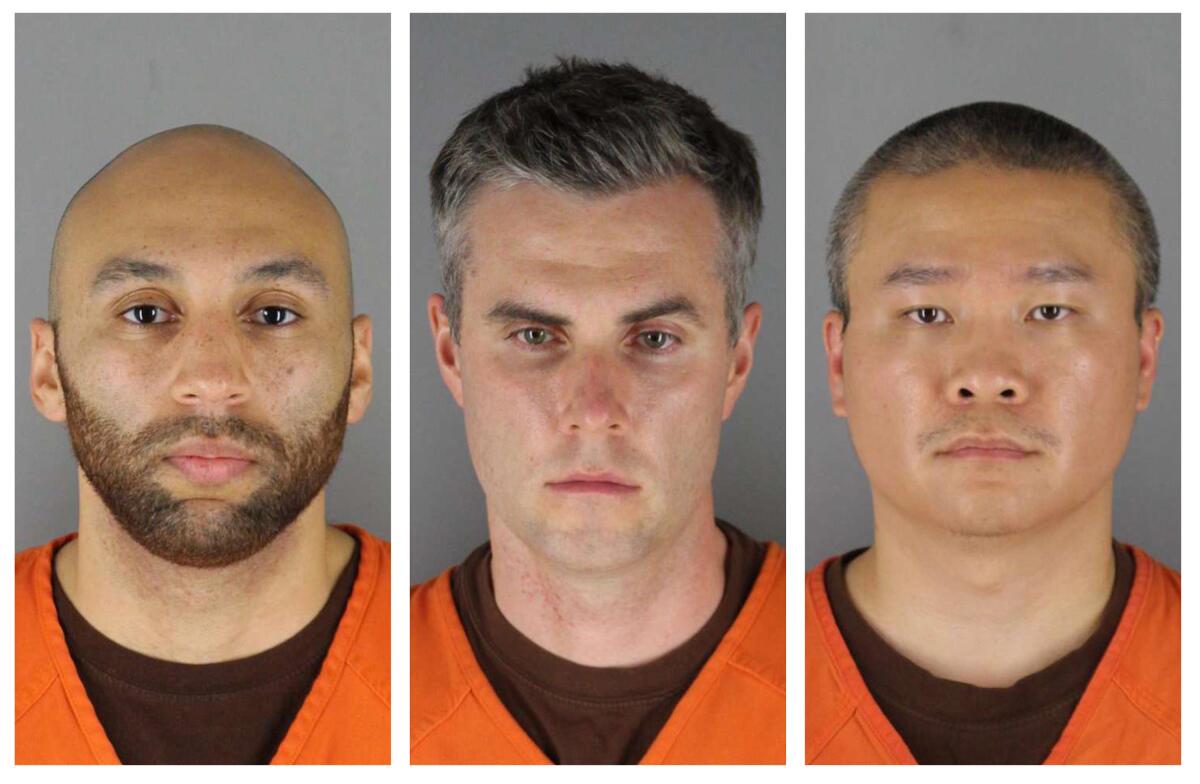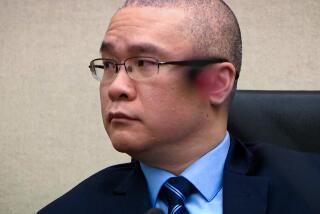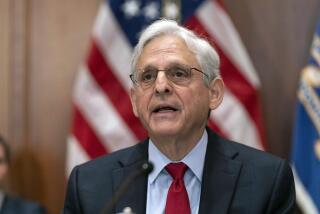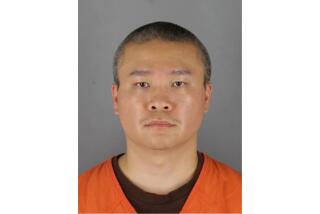Jury selected for federal trial of 3 other officers involved in George Floyd’s killing

- Share via
ST. PAUL, Minn. — A jury was picked Thursday for the federal trial of three Minneapolis police officers charged in George Floyd’s killing, with the judge stressing repeatedly that fellow Officer Derek Chauvin’s conviction on state murder charges and guilty plea to a federal civil rights violation should not influence the proceedings.
J. Alexander Kueng, Thomas Lane and Tou Thao are broadly charged with depriving Floyd of his civil rights while acting under government authority as Chauvin used his knee to pin the Black man to the street. Separately, they’re charged in state court with aiding and abetting both murder and manslaughter in the videotaped killing that triggered worldwide protests, violence and a reexamination of racism and policing.
Jury selection took just one day for the federal trial.
U.S. District Judge Paul Magnuson questioned potential jurors in groups to get a pool of 40 people, who had already answered an extensive questionnaire. Each side then used their challenges to strike jurors until they had just 18 people — 12 who will deliberate and six alternates.
By comparison, at Chauvin’s state trial, the judge and attorneys questioned each juror individually and spent more than two weeks picking a panel.
Magnuson told potential jurors they must be able to decide the case based upon its own evidence, setting aside anything else. He singled out some jurors by number and asked them pointedly if they could do so, saying he was “harping and harping and harping” because state and federal law are different and he wanted to ensure they could be objective.
Legal experts say the federal trial will be more complicated than the state trial, scheduled for June 13, because prosecutors in this case have the difficult task of proving the officers willfully violated Floyd’s constitutional rights — unreasonably seizing him and depriving him of liberty without due process.
Phil Turner, a former federal prosecutor, said prosecutors must show the officers should have done something to stop Chauvin, rather than show they did something directly to Floyd.
Among the jurors excused Thursday was a man who said he has a problem watching the video of Floyd’s arrest. Several others were excused after they said they did not think they could be impartial, including a man who said his faith also prevents him from judging a human being.
One woman was excused after she said she had difficulty with vandalism in the community. Afterward, Magnuson said he understood such concerns about “anarchy in streets” but said “that fear cannot control in a courtroom.”
The jury pool was selected from throughout the state — much more conservative and less diverse than the Minneapolis area from which the jury for Chauvin’s state trial was drawn. That jury was evenly divided among whites and nonwhites. The federal court declined a request to provide demographic information on jurors in the civil rights trial.
Floyd, 46, died on May 25, 2020, after Chauvin pinned him to the ground with his knee on Floyd’s neck for 9½ minutes while Floyd lay face down, handcuffed and gasping for air. Kueng knelt on Floyd’s back and Lane held down his legs. Thao kept bystanders from intervening.
A statement from attorneys for the Floyd family Thursday said bystander video showed that the three officers “directly contributed to (Floyd’s) death and failed to intervene to stop the senseless murder” and that the family expects them to be held accountable.
Several activists gathered in front of the courthouse to call for conviction.
“Considering the fact that he moaned in agony, that he could not breathe for minutes on end until he passed, I believe for a fact that they denied him of his civil rights,” said Courteney Ross, Floyd’s girlfriend at the time of his death. “I demand justice, and I hope everyone remembers what they did on that day.”
Federal prosecutors face a high legal standard to show that an officer willfully deprived someone of their constitutional rights. Essentially, prosecutors must prove that the officers knew what they were doing was wrong, but did it anyway.
Magnuson said he expects the trial will last four weeks.
Kueng, Lane and Thao are all charged with willfully depriving Floyd of the right to be free from an officer’s deliberate indifference to his medical needs. The indictment says the three men saw Floyd clearly needed medical care and failed to aid him.
Thao and Kueng are also charged with a second count of willfully violating Floyd’s right to be free from unreasonable seizure by not stopping Chauvin as he knelt on Floyd’s neck. It’s not clear why Lane is not mentioned in that count, but evidence shows he asked twice whether Floyd should be rolled on his side.
Both counts allege the officers’ actions resulted in Floyd’s death.
Such federal civil rights violations are punishable by up to life in prison or even death, but those stiff sentences are extremely rare and federal sentencing guidelines indicate the officers would get much less if convicted.
Associated Press writer Tammy Webber in Fenton, Mich., contributed to this report.
More to Read
Sign up for Essential California
The most important California stories and recommendations in your inbox every morning.
You may occasionally receive promotional content from the Los Angeles Times.










